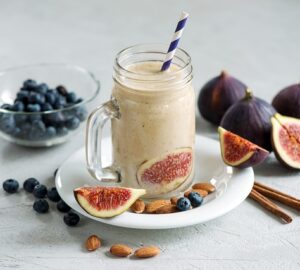While eating healthy is a cornerstone of any successful lifestyle change, many people don’t realize that the foods you eat can have a significant impact on your brain’s performance. If you’re looking for a boost in your cognitive abilities, here are seven foods to help you get started. From foods that will help you concentrate in meetings to foods that will enhance your memory, everything is listed down below.
Almonds – Contain Vitamin E, Which Can Help Improve Your Memory
If you’re looking for ways to improve your memory and boost your brainpower, you may have heard about the benefits of omega-3 fatty acids. This nutrient can be found in foods like walnuts and salmon but can also be found in almonds. Almonds are a great source of vitamin E, which can help improve your memory and brain function as you get older. Even if you’re not worried about getting older, adding more almonds to your diet can be a great way to improve your memory.
Omega-3 fatty acids are essential fatty acids that the body cannot produce on its own, so they must be consumed through diet. They are also found in foods like walnuts, flaxseed, and salmon. Omega-3s are known for their “anti-inflammatory” effects, which has led some to believe that they can help reduce the risk of heart disease and stroke. They also play an important role in the development of brain cells and can help improve symptoms of depression.
Leafy Greens – Helps Protect Against Alzheimer’s Disease
Leafy greens are rich in folate, which helps protect against Alzheimer’s disease by reducing levels of homocysteine in the body. A deficiency of folate is linked to an increased risk of Alzheimer’s disease. Folate is found in leafy greens such as spinach, kale, collards, turnip greens, and mustard greens, as well as in many fruits and vegetables.
Leafy greens are loaded with antioxidants, vitamins, and minerals that help protect your brain. A study published in the “Journal of Neurochemistry” found that eating spinach can help protect against age-related memory loss and cognitive decline. If you don’t like eating leafy greens, try taking a folate supplement.
Blueberries – For Enhanced Learning And Memory
The health benefits of blueberries are numerous and well documented. In addition to being an excellent source of vitamins and minerals, blueberries are a potent source of antioxidants. Studies have shown that blueberries boost cognitive skills and improve brain function. They are also known to improve memory and enhance learning ability.
Matcha And Other Teas
Matcha is a finely ground green tea powder that is used in Japanese tea ceremonies. It is also used in traditional Chinese medicines and herbal supplements. Matcha contains L-theanine and caffeine, which are both powerful antioxidants. Matcha and several other teas are a powerful way to boost your memory, mental clarity, and concentration. It’s important to note that the caffeine in green tea actually has a calming effect on your body and helps to reduce stress. It is important to note that caffeine has a time-release effect, so you should avoid coffee later in the day if you plan on consuming a caffeinated tea. Drinking matcha tea is a great way to wind down your day, and it will help calm your mind before you go to bed. If you are working late at night and need to stay focused, matcha is the perfect drink to help you power through. It is a great alternative to coffee.
Matcha is a tea that is also known as a superfood. It is a potent antioxidant, so it is a great way to fight off nasty free radicals. The matcha green tea latte powder is a great way to enhance your memory, focus, and mental clarity naturally. Other teas that can help your memory include black, white, and green teas.
Salmon – For Improved Concentration
Salmon is the top food to boost brain function and improve your memory. Research shows that salmon can improve brain function and help to improve memory and concentration. Salmon has been found to contain a natural chemical named DHA (docosahexaenoic acid) which can help to boost memory and improve cognitive functions.
Avocado – For Memory Improvement
Avocado is a type of fruit that is rich in healthy fats and fiber. They are very low in sugar and are cholesterol-free. The best part about avocados is that they have zero fat content and do not contain omega-6 fatty acids. This means that they are highly recommended for people who are suffering from hypertension and high blood pressure. Moreover, they are also high in potassium and folic acid, which is great for the heart. They are also rich in vitamin B6 and vitamin E, which are vital in the development of red blood cells, muscles, and nerves.
Above all, avocados are beneficial for our brain as they contain mono-saturated fatty acids and oleic acid. Mono-saturated fatty acids, which can be found in olive oil, avocados, and other sources, are good for the brain because they are linked to preventing cognitive decline, depression, and other forms of mental illnesses.
Pumpkin Seeds–For Faster Processing Of Information In The Brain
As one of the best brain foods, pumpkin seeds are packed with essential nutrients that improve memory and overall brain health. Pumpkin seeds have high levels of magnesium and zinc, two nutrients that help balance estrogen and testosterone, boost brain function, and even prevent Alzheimer’s. Pumpkin seeds are also packed with tryptophan, which makes the brain produce serotonin, the “happy chemical.” This helps eliminate stress and keep your mood upbeat.
If you are a student, a working professional, or even if you work from home, you need to eat pumpkin seeds if you are looking to improve your ability to learn and process information. Thanks to the presence of choline in pumpkin seeds, they can improve learning and memory and also improve how well your brain functions. A lack of choline in the brain can lead to a number of neurological disorders.




